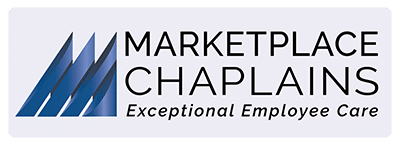How Workplace Chaplaincy and EAPs Can Work Together for EE Well-Being
Introduction: In today’s fast-paced and demanding work environment, employees are often faced with stress, anxiety, and other mental health issues. Workplace chaplaincy and Employee Assistance Programs (EAPs) are two valuable resources that can help employees cope with these challenges. While they have different approaches, they can work together to create a supportive and compassionate workplace culture.
What is Workplace Chaplaincy?
 Workplace chaplaincy is a unique form of pastoral care that provides emotional and spiritual support to employees in the workplace. Chaplains are often employed by businesses or organizations to offer counseling, prayer, emotional support, and religious guidance to employees of all faiths or none. They provide a confidential, non-judgmental listening ear and help employees to cope with difficult life situations, such as bereavement, marital problems, or financial difficulties.
Workplace chaplaincy is a unique form of pastoral care that provides emotional and spiritual support to employees in the workplace. Chaplains are often employed by businesses or organizations to offer counseling, prayer, emotional support, and religious guidance to employees of all faiths or none. They provide a confidential, non-judgmental listening ear and help employees to cope with difficult life situations, such as bereavement, marital problems, or financial difficulties.
What are EAPs?
EAPs are employer-sponsored programs that provide confidential counseling, support, and resources to employees and their families. These programs can help employees with a wide range of personal and work-related issues, such as stress, substance abuse, financial problems, and relationship issues. EAPs can provide short-term counseling, referrals to specialized services, and resources to help employees cope with their challenges.
How Workplace Chaplaincy and EAPs Can Work Together
While workplace chaplaincy and EAPs have different approaches, they can complement each other to provide a holistic support system for employees. Chaplains can offer spiritual guidance and emotional support to employees, while EAPs can provide practical counseling and referral services. For example, a chaplain may listen to an employee’s concerns, act as a safe, confidential advisor, offer a prayer or resources, while an EAP counselor may provide guidance on how to manage stress or refer the employee to a mental health specialist.
Benefits of Integrating Workplace Chaplaincy and EAPs
Integrating workplace chaplaincy and EAPs can have several benefits for employees and employers alike. First, it can help to create a more supportive and compassionate workplace culture that values the well-being of employees. Second, it can provide employees with a broader range of resources to cope with their challenges, whether they are spiritual, emotional, or practical. Third, it can help to reduce stigma around mental health issues and promote a more open and supportive workplace environment.
FAQs:
Q: Are workplace chaplains only for religious employees?
A: No, workplace chaplains are available to all employees regardless of their faith or beliefs.
Q: Do EAPs offer long-term counseling?
A: EAPs typically provide short-term counseling and referral services, but they can refer employees to specialized services for longer-term support.
Q: How can I find a workplace chaplain or EAP?
A: Many companies offer workplace chaplaincy or EAP services to their employees. Check with your HR department or employee benefits package to see if these services are available.
Conclusion:
Workplace chaplaincy and EAPs are two valuable resources that can help employees cope with the challenges of life struggles and modern work environments. By working together, they can provide a more holistic support system that values the well-being of employees. By integrating these resources, employers can create a more supportive and compassionate workplace culture that promotes employee well-being and productivity.







